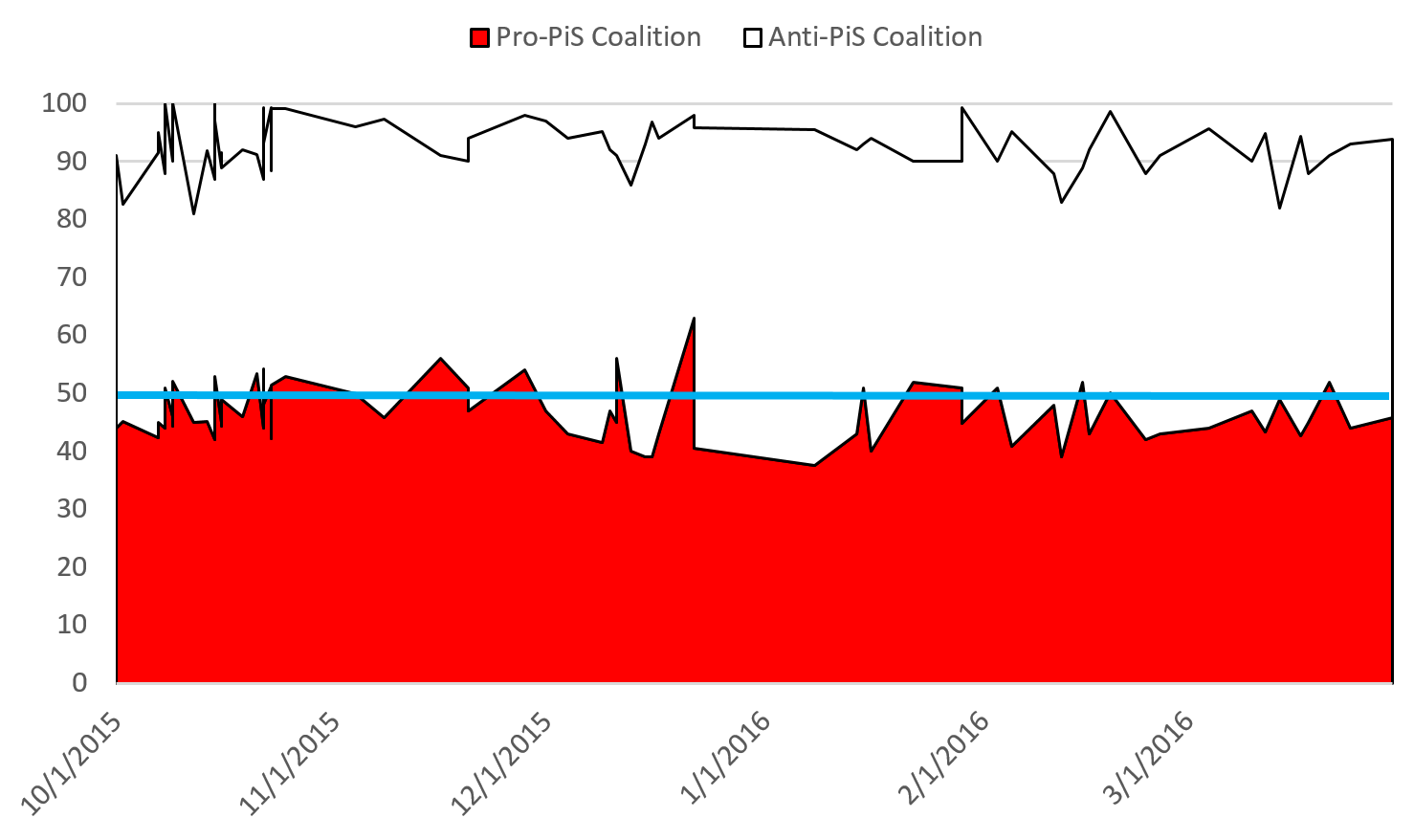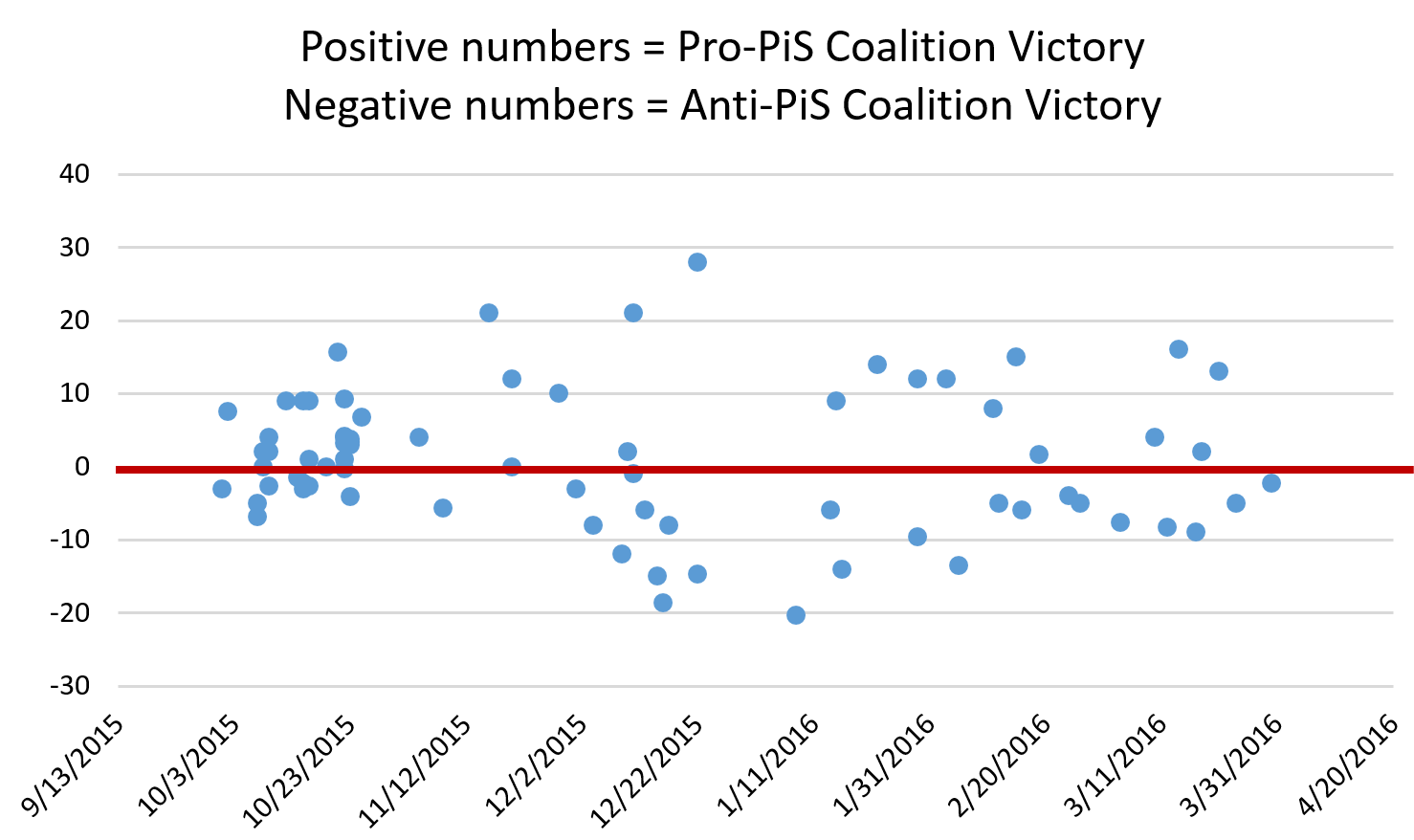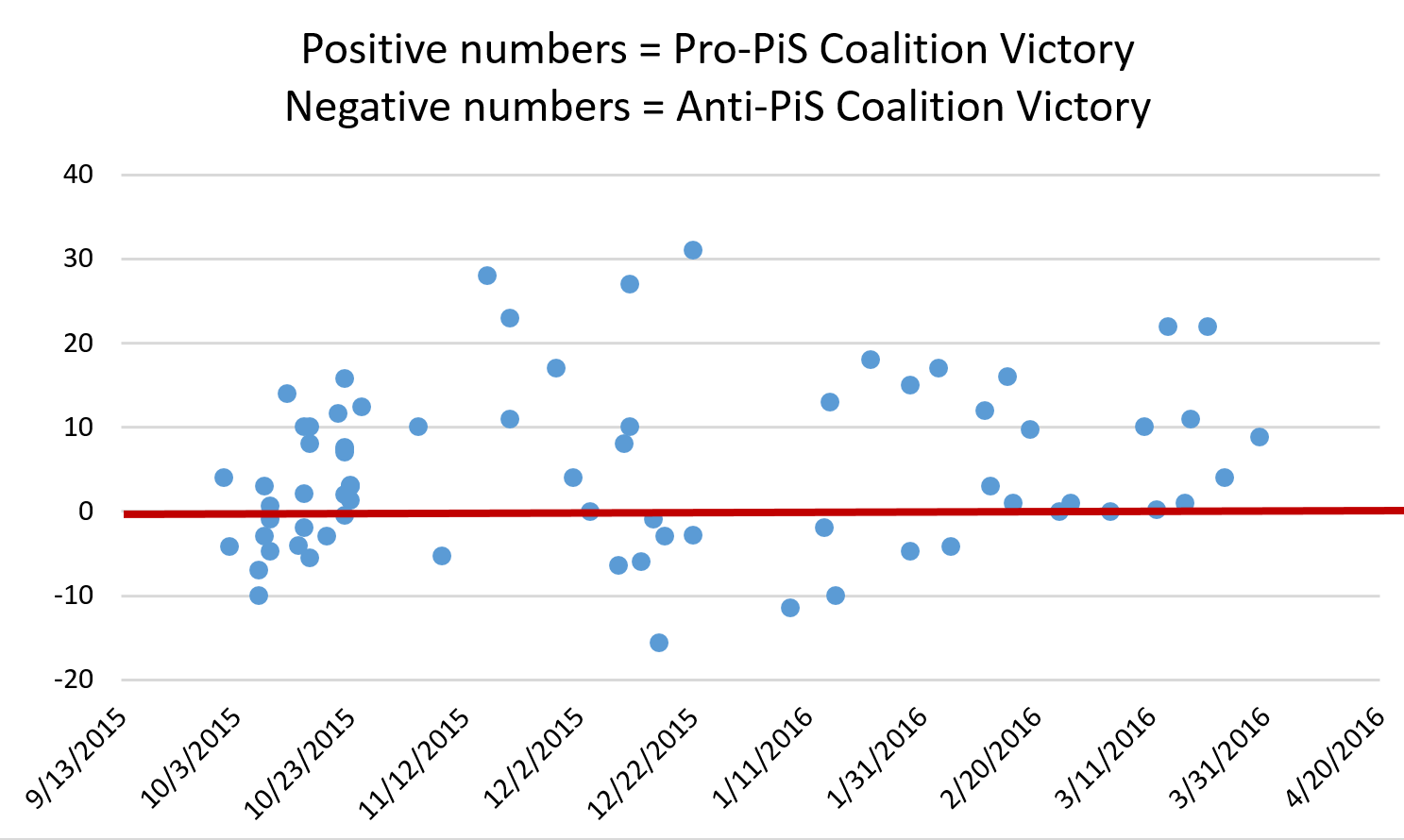So Far, PiS has a Secure Hold on Power
I’m not sure that there’s much point in tracking survey data about the popularity of the Law and Justice movement. First, between now and the next elections there are certain to be a lot of ups and downs for all the major parties in Poland, and we can’t make any projections based on the current situation. Beyond that, however, is the deeper question of whether polling data even matters for Kaczyński. The way he has created his new political order—acting as if he has an uncontested national mandate despite winning just over a third of the vote—shows that he does not consider his legitimacy to stem from popularity. He believes that he speaks for the nation in its transcendent and transhistorical form, whereas the shifting sands of public support represent (as Kaczyński’s hero Roman Dmowski often said) the momentary whims of people with limited political “maturity” and “reason.” As many leading PiS activists have said, those who protest against the new regime represent people with a “genetic” disposition for treason, people who aren’t really Polish, and people who just can’t reconcile themselves to their loss of power. So the defense mechanisms within PiS against changes in their popular support are very strong.
But even if it is irrelevant in practical terms, it is illuminating to consider what sort of popular resonance the PiS revolution enjoys. There are several ways we might assess this. Just considering support for PiS itself, there has been a marked decline of more than 10 percentage points since the elections last October. The invaluable website ewybory.eu has been maintaining a running tally that averages the results from all the major polling firms, from TNS Polska and CBOS (which tend to report significantly higher levels of PiS support) to Pollster and IBRIS (which tend to produce much lower figures). This polling average is now at 29%, a considerable drop from the highpoint of 42% last summer or 38% at the time of the October elections.
But we need to be careful here, because that figure doesn’t mean much in isolation. If PiS support is shifting towards other far-right parties like Kukiz or Korwin, then the overall picture doesn’t change. And even if there was an overall shift towards the broad cluster of parties that remain loyal to the Third Republic’s constitution, that won’t matter if a significant share of that anti-PiS vote remains fragmented among parties too small to pass the necessary 5% limit needed to win Sejm delegates.
So here are two ways to consider the recent ups and downs of the survey data—and now I’m going to shift to the disaggregated data, representing each survey separately regardless of the firm that carried it out. The first groups together PiS, Kukiz, and Korwin on one side and Nowoczesna, Platforma, PSL, SLD, and Razem on the other. The numbers do not add up to 100% because of those who reply “unsure” and those who pick one of the several micro-parties.

We could read this as a signal that PiS and its potential partners have rarely been above 50%. On the other hand, the Constitutional Coalition is similarly short of a majority. Just comparing the two, we see that they have been trading places up and down, depending on the survey. Neither side in this struggle can take much solace in these results.

But so far I’ve just considered the notional support for each party, without taking into account whether or not they would actually make it into the Sejm if elections were held today. So what would happen if we cut all the results that fall below the 5% mark (or 8%, in the case of coalitions like SLD)?

Now all the numbers shift upwards. Put simply, if elections were held today PiS would be favored to win once again. As last time, they would fall well short of a majority, and even a coalition among all their potential allies would not be enough. But when the 5% rule is considered, their prospects improve dramatically. The legal quirk that allowed PiS to get more than half the Sejm delegates even though they won only 38% of the vote would continue to work in Kaczyński’s favor.
The bottom line is that the only way to stop PiS would be to form a single grand coalition of all the potential anti-PiS parties, from the libertarians in Nowoczesna to the socialists in Razem. Even then it would be a close election, in all likelihood. Is this a viable possibility? It’s hard to see it happening given the ideological caverns that separate the opposition parties. It is one thing to protest together in defense of constitutional legality; it is another matter entirely to envision a functioning coalition with any positive message at all. I fear that the only conclusion at this time is to recognize that for PiS to lose power they will have to fall a good deal further in popularity. Moreover, their support will need to swing not to one of the other far-right parties, but to one of the liberal or socialist parties in the anti-PiS cluster. There are not signs of that happening yet.